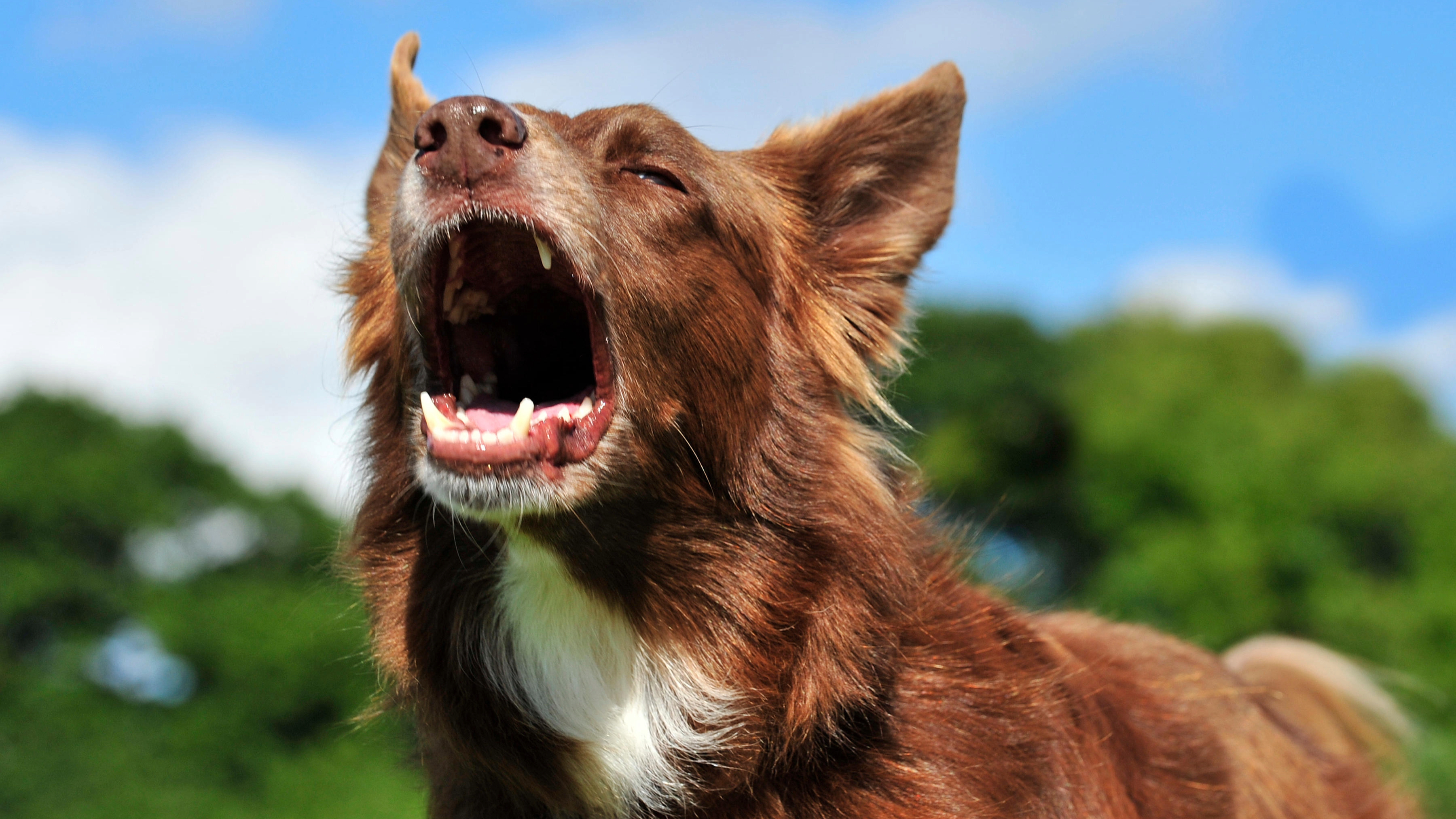If your dog becomes reactive when other dogs bark, try this expert's simple advice
To help support your pup, empathy is key!

Often, dogs bark at each other. This isn’t always something to be worried about – a dog might bark at another dog if they’ve not met before, and they’re trying to figure out if they’ll get on with them, or two dogs who know each other might bark at each other as a greeting, too.
However, when dogs react to another dog barking at them by barking back, there is a danger that the situation may escalate. A dog who overreacts to another dog’s barking could be scared, surprised, or panicking based on previous experiences with other dogs.
If your dog reacts to other barking dogs, however, the most important thing you can do to help them is to show empathy (though some of the best dog treats also won’t go amiss), as pet expert Angelo Sorbello, CEO of Pet Sprint, has explained.
“Understanding your dog's feelings is incredibly important,” he says. “Mostly it’s instinctive and based on intuition – just as they sense our moods intuitively, too. The longer you have had the same dog and the closer you are to it, likely the better you will get at reading its emotions. But you can always get more sensitive to your pup, and that’s vital if they are barking back aggressively at other barking dogs.”
Take note of your dog’s body language when they encounter barking dogs, too. If they’re tense, perhaps with raised hackles or pinned-back ears, they could be anxious, stressed, or on edge.
Sorbello recommends doing the following seven things to help your pup:
1. Redirect attention: Try to distract your dog with a toy, a treat, or a short grooming session.
Get the best advice, tips and top tech for your beloved Pets
2. Use a calming command: Use a command that you use to help calm your dog down; one they associate with safety – here’s how to calm a reactive dog for related advice.
3. Change your route: Simply add some distance between your dog and the triggers.
4. Create positive associations: Reward with treats or toys when your dog encounters one of their trigger dogs, so they begin to make associations between other dogs and positive events.
5. Desensitize your dog: Gradually expose your dog to other dogs that don’t stress them out – why not invite a friend and their calm, well-behaved dog out for a walk?
6. Be patient: Don’t force your dog to interact with other dogs if they’re reluctant to do so.
7. Use calming products: Try out calming products to see if they help your dog, or simply use calming scents like camomile or garments and fabrics they know well.
Sorbello adds, “You can try specific pet training that helps you recognize and empathize with their deeper emotions. If your pup is scared or stressed by other dogs, try regular desensitization and counter-conditioning training to help them build confidence, and develop positive associations. You will benefit from the training as much as your pet by becoming more empathetic towards them!”
If it’s your dog who barks at other dogs, meanwhile, you might find this article useful: My dog used to bark at every other dog she met, now she has canine friends.

Adam is a freelance journalist specialising in pets, music and culture, and mental health and wellbeing. He investigates and writes the large majority of news on PetsRadar, and collaborates with veterinary experts to produce informative pet care content.
Adam has a journalism degree from Southampton Solent University and a masters degree in Magazine Journalism from Cardiff University. He was previously senior editor at dog advice website DogTime.com, and has also written for The Independent, GoodToKnow and Healthline.
He owns two rescue cats, Bunny and Dougie, and has also previously had a rabbit, fish and Roborovski dwarf hamsters.
